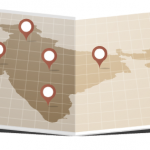
Sarunyu_foto / shutterstock.com
It was a delight to read the comments in the May 2019 issue of The Rheumatologist on a paper by Hirsch and colleagues, discussing how health literacy affects the patient global assessment.1,2 Patient-driven outcome measures (PROs), patient global assessment on a visual analog scale (VAS) or a numeric rating scale (NRS), a segmented numeric version of the VAS, and a patient’s degree of pain on a similar scale are among the core measures used to assess a patient’s disease status at each clinic visit. The authors convincingly demonstrated a close correlation of health literacy with correct assessment of disease outcome using PROs.
We rheumatologists, especially from the Third World, face the issue of health illiteracy possibly much more than our colleagues in other fields of medicine. In view of the importance of the patient’s perspective and several recent papers discussing the issues related to assessing the patient’s global score in rheumatoid arthritis (and in other diseases), I decided to write this short piece on the status of patient global assessment in India.3-5
Rheumatology Care in India
During the past 51 years, I have worked in the Division of Clinical Immunology and Rheumatology in two major medical centers in New Delhi, India. My work includes patient care, teaching and research.
In my clinical work, eliciting the patient global assessment has been challenging, to say the least. I start by asking the internationally recommended phrase—“Considering all the ways arthritis affects you, rate how well you are doing on the following scale?”—and show them the standard numeric scale (0–100) with 21 small circles on a horizontal straight scale. I also try to translate the question into the language used most often by patients attending my clinic—Hindi.
This commonly elicits one of several interesting responses. The most common is “Well, you are the doctor. You tell me how well or not well I am.” Implied in the response is “I am paying you for the clinic visit, so you should tell me this rather than asking me!”
The second most common response is that the patient turns toward an accompanying person (e.g., husband, wife, son, daughter, mother, father, brother) and says, “You answer this question.”
As the doctor, I find it difficult to figure out whether the patient doesn’t understand the question or really does not know how to objectively answer the question. When I insist the patient answer the question, they may respond, “I am better than before.”
I tried to explain to one patient that the human mind is poor at recalling medical history. She insisted, “No, no, I do know how I was earlier.”
Then, I tried a different question, “Do you remember what you had for dinner on the last clinic visit day?”
“How can I remember that?” she promptly replied.
I went back to the 0–100 scale, but using an actual one foot ruler scale. I explained, “This end means No disease/completely well, while the other end means maximum disease/worst pain.”
She looked at the ruler, smiled and said, “Hamaar bachava eka layke line kheenchat hai” (“My son uses it for drawing a line”), and then promptly put her finger on the right end of the ruler—maximum disease (i.e., 100).
I tried to explain this could not be correct because she had walked in the clinic without support, showed no antalgia and showed no discomfort when taking a few steps or on sitting down in the chair. Thus, she cannot have 100% disease.
She countered, “But my left elbow is hurting; therefore, my score is 100.”
I persisted and tried to elicit an average global assessment by giving an example: “On one day I earn 30 rupees, and on the other day only 10 rupees. What is my average earning for a single day?”
By this time, she looked embarrassed and anxious. “Doctor, please do not ask me such difficult questions. I am not much educated to answer tough questions.”


